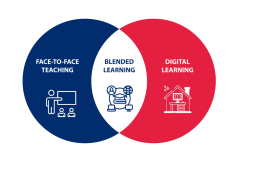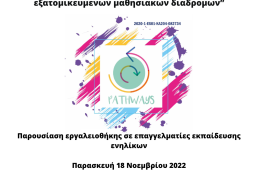In a world where technology is rapidly evolving, the education landscape is undergoing a significant transformation. The COVID-19 pandemic has accelerated the need for digital solutions in various sectors, including vocational education and training (VET). In response to these challenges, the Erasmus+ Programme of the European Commission has funded the groundbreaking project, DigiVET, which aims to empower VET trainers and trainees alike through the creation of digital content using free online resources.
Challenges in VET Amid the Digital Era and COVID-19
The VET sector has faced a series of challenges in recent years. The transition to the digital era has demanded an adaptation of traditional teaching methods to incorporate digital tools effectively. Moreover, the global pandemic has disrupted traditional learning methods, forcing VET institutions to find innovative ways to ensure continuity in education. DigiVET recognizes these challenges as opportunities for growth and development.
Empowering VET Trainers
At the heart of DigiVET’s mission is the empowerment of VET trainers. These educators are key players in shaping the skills and competencies of the workforce of tomorrow. To ensure they are equipped for this crucial role, DigiVET focuses on improving their digital competences.
Through a comprehensive program, VET trainers are provided with the necessary training and resources to enhance their digital skills. This includes learning how to harness free online resources effectively, curate educational content, and adapt teaching methodologies to suit the digital age. By upskilling VET trainers, DigiVET ensures that they can provide high-quality, digitally-enhanced education to their trainees.
Addressing Contemporary Needs of Trainees
VET should be relevant and responsive to the evolving needs of trainees and the job market. DigiVET recognizes this and aims to bridge the gap between traditional VET and the contemporary requirements of trainees. By equipping VET trainers with the ability to create digital learning resources, DigiVET ensures that training programs can be tailored to meet the specific needs and preferences of individual trainees.
These digital resources can take various forms, from interactive e-learning modules and virtual simulations to multimedia presentations and online assessments. Such flexibility allows VET trainers to engage trainees more effectively, making learning both engaging and relevant.
Building a More Resilient VET Sector
DigiVET is more than just a response to immediate challenges; it’s an investment in the long-term resilience of the VET sector. By embracing digital innovation, VET institutions can future-proof their programs and better adapt to the ever-changing demands of the workforce.
Furthermore, DigiVET promotes collaboration and knowledge-sharing among VET trainers across Europe. This exchange of ideas and experiences fosters a vibrant and interconnected VET community, ensuring continuous improvement and innovation.
Conclusion
The DigiVET project, funded by the Erasmus+ Programme of the European Commission, represents a forward-thinking approach to the challenges faced by the VET sector in the digital era and the era of COVID-19. By enhancing the digital competences of VET trainers and enabling them to create customized digital learning resources, DigiVET empowers both educators and trainees alike. This project not only bridges the gap between traditional VET and contemporary needs but also strengthens the resilience of the VET sector as a whole. As DigiVET paves the way for a more innovative and adaptive VET landscape, it is clear that the future of vocational education is digital, dynamic, and inclusive.









